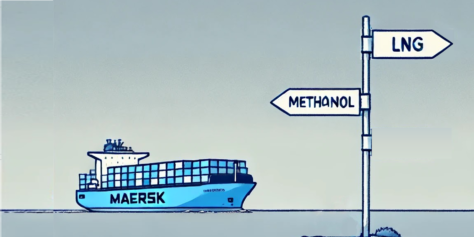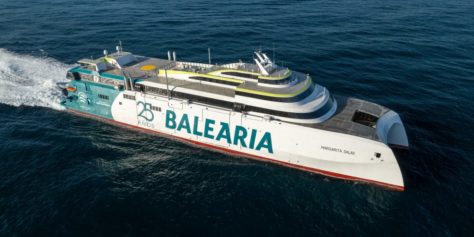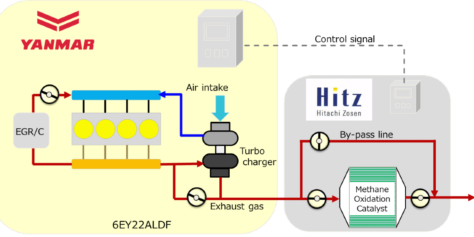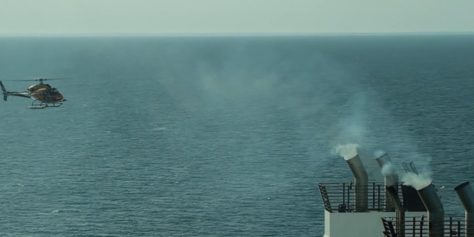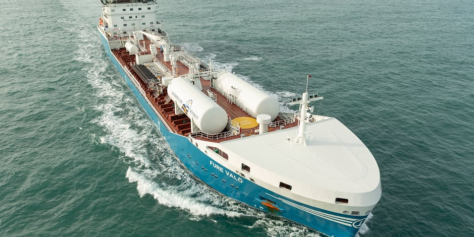Maersk has announced the signing of contracts for the construction and chartering of new vessels that will be able to operate on Liquefied Natural Gas (LNG). This move marks a significant change in the company's strategy, which until now had rejected the use of LNG in favour of more sustainable fuels such as green methanol.
It is the second 'fast ferry' with dual natural gas engines in the world that has been built at the Armón shipyard in Gijón. The ship begins operations at the end of June
Leading Chinese shipbuilder Nantong CIMC SOE has signed a contract for the construction of a 12,500 cbm LNG bunkering vessel with Enagás subsidiary Scale Gas.
A tripartite partnership between Japanese shipping companies has achieved a 93.8% reduction in methane exhaust from a marine gas engine operating at 100% load in onshore tests, paving the way for trials at sea.
A two-year research project to measure real-world methane emissions from LNG-fueled ships in Europe. The project is a collaboration between the International Council on Clean Transport (ICCT), Explicit ApS, a Denmark-based emissions control company, and TNO, an independent Dutch research organization.
Furetank has achieved a 55% reduction in CO2 emissions compared to the previous generation of ships. The goal is to get to zero by running the vessels entirely on renewable liquid biogas, but currently the supply is not sufficient. Now the company offsets the rest of its impact by purchasing certified carbon credits, reaching zero in 2021

